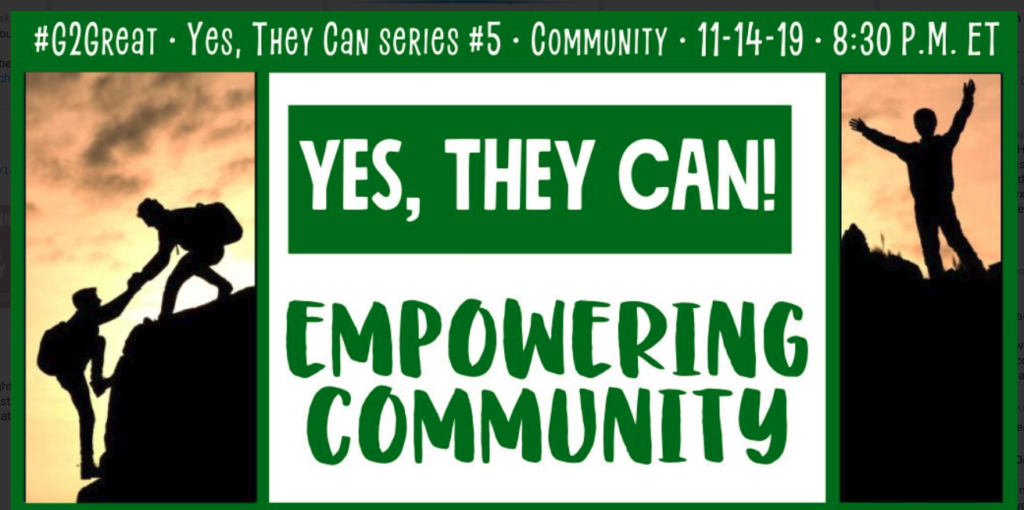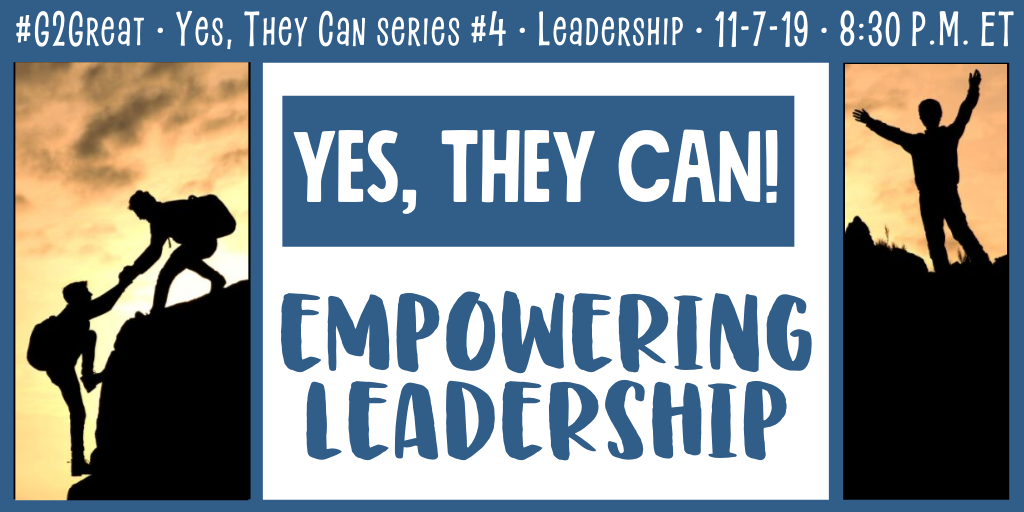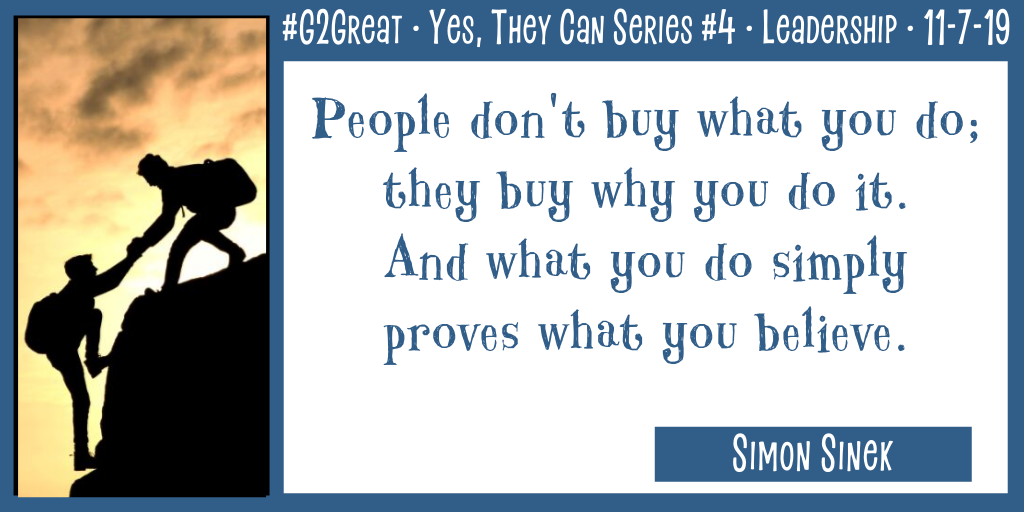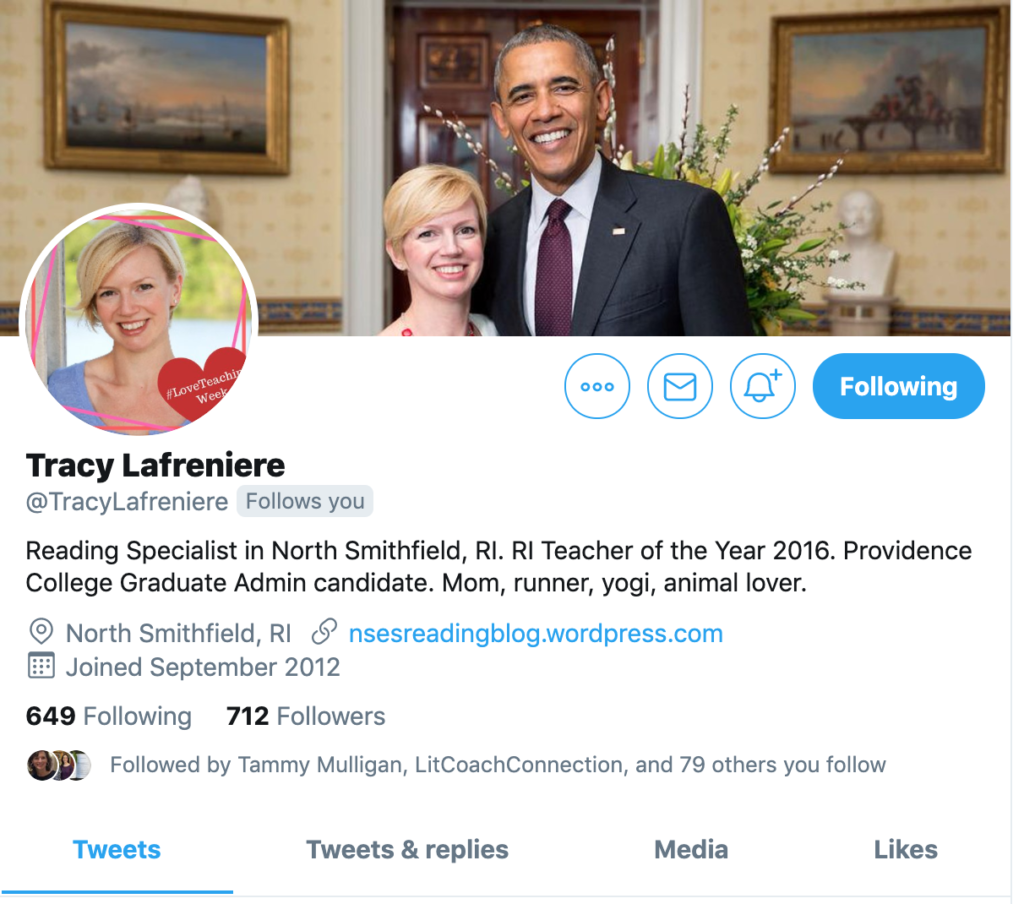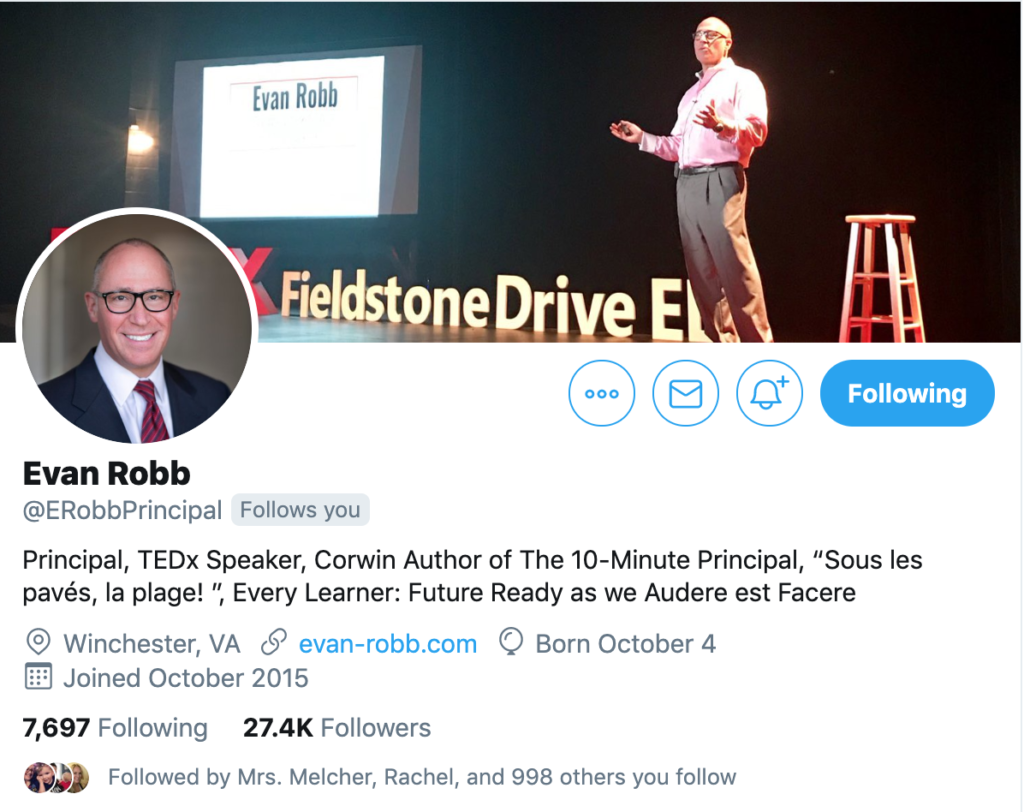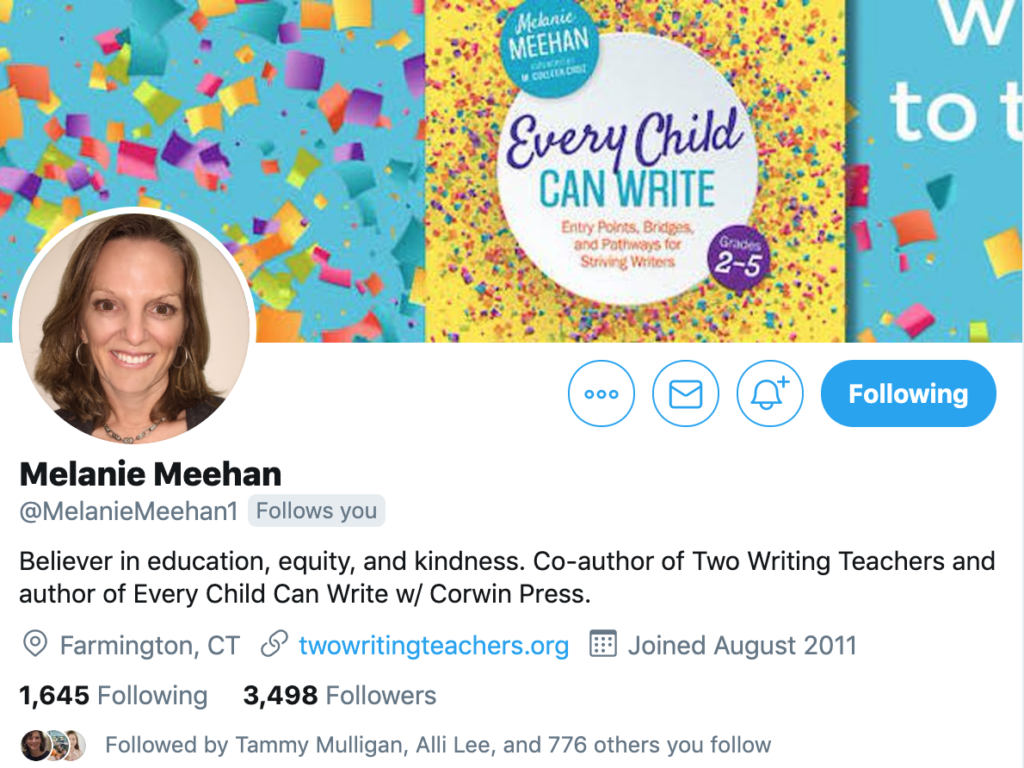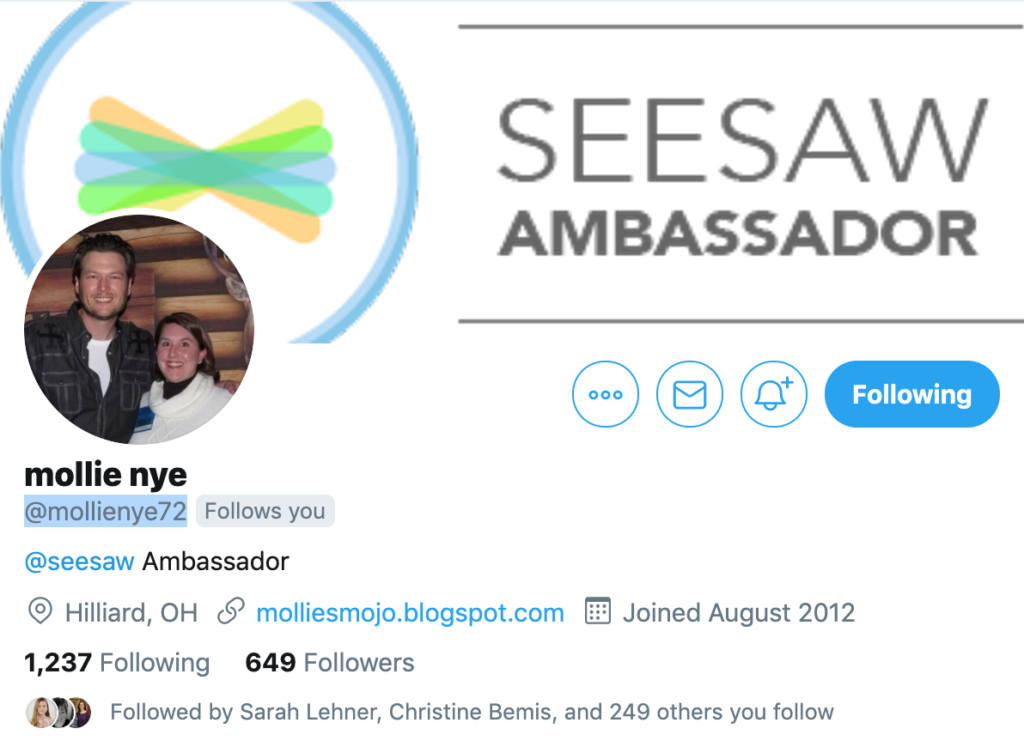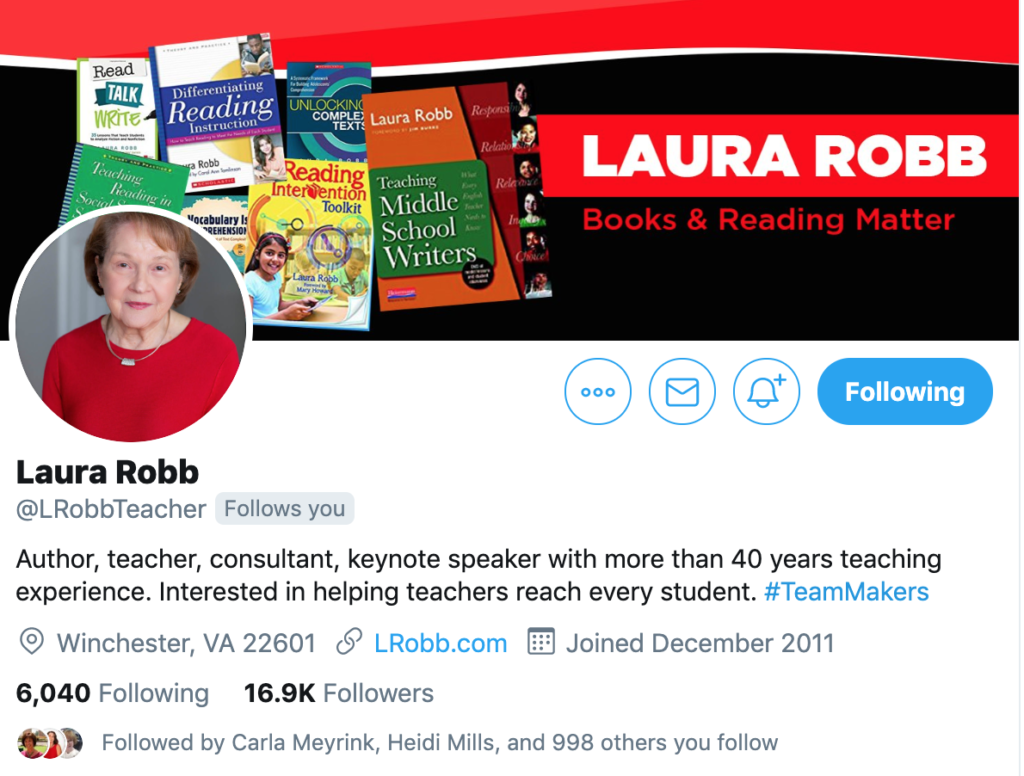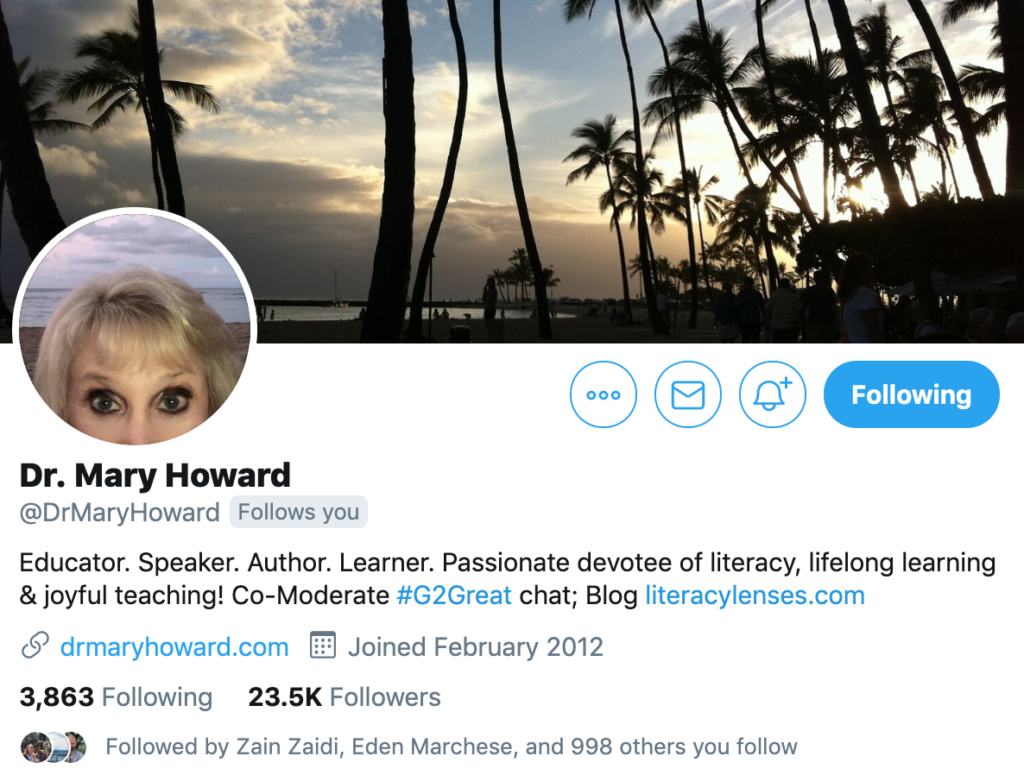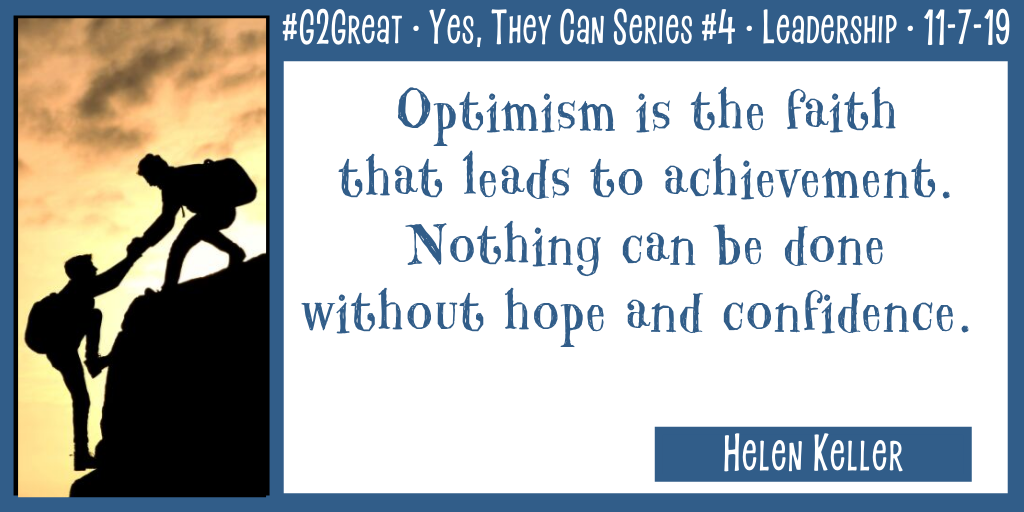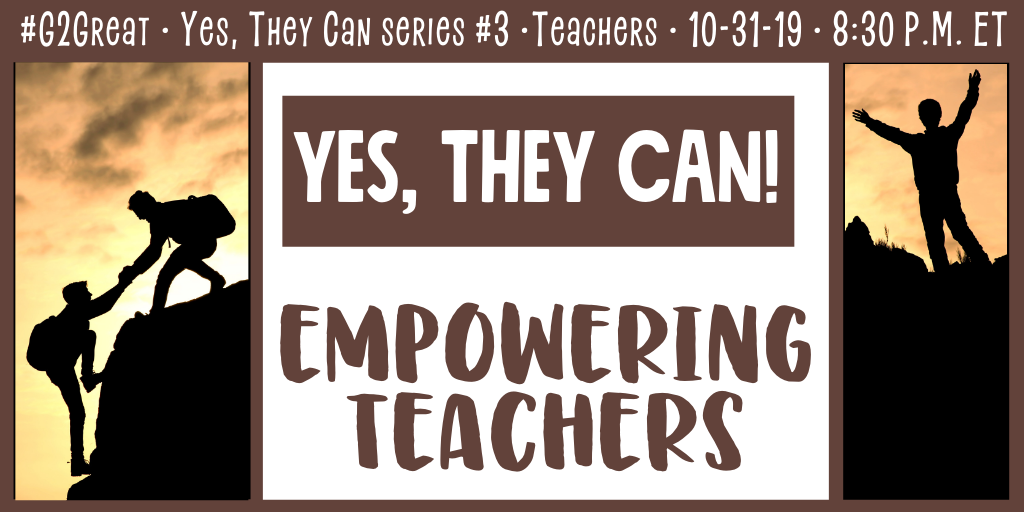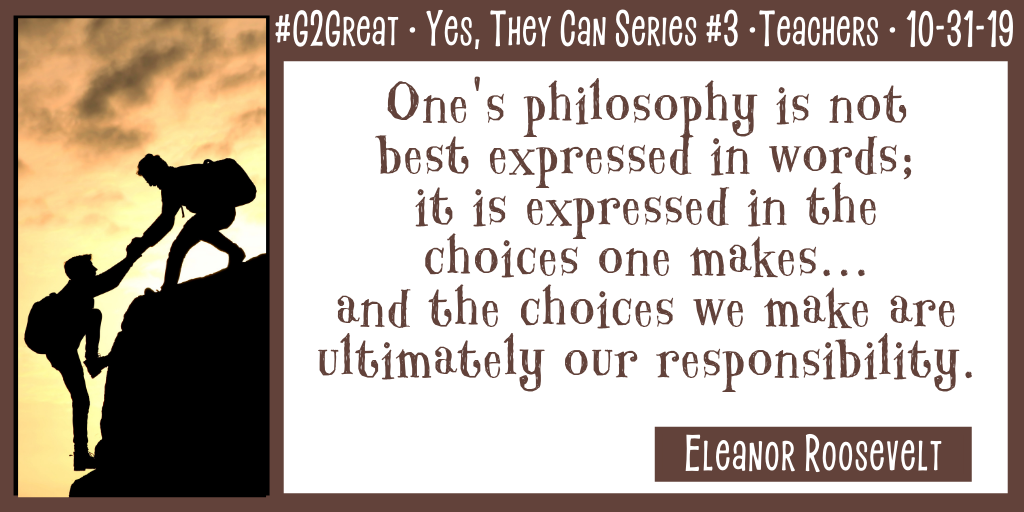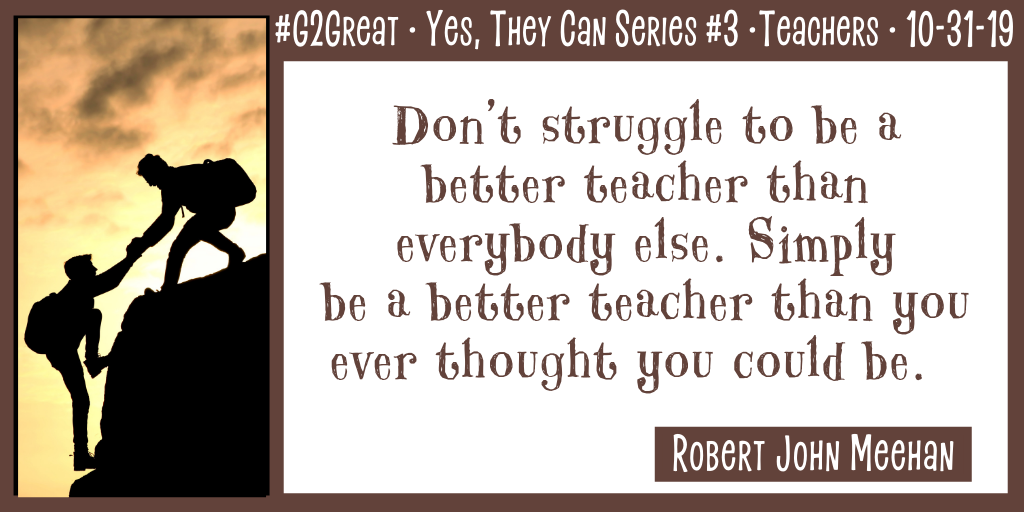by Fran McVeigh
Thursday, November 14, 2019 was the fifth and final chat in our “Yes, They Can!” series envisioned by #G2Great Team Member Valinda Kimmel. Our focus was on “Empowering Community” and the discussion was lively with some common threads for the evening and the entire series. Basic concepts included: “Yes, They Can”, communication, transparency, and student agency but with that quick look at our end point, I would like to recap the first four chats to establish a sequence of learning and set the scene for this post.
This “can do” theme has been a great source of optimism and positivity so when the following tweet in my Twitter feed stopped me in my tracks before I began to study our Wakelet, I immediately had a lengthy conversation with myself. (Several conversations!) This tweet seemed to embody the opposite of what our series was hoping to initiate, develop, and nurture. Numerous re-readings kept me focused on the concept of transformation and the amount, volume or depth of pressure in order for change to occur. Check it out! What does it say to you?
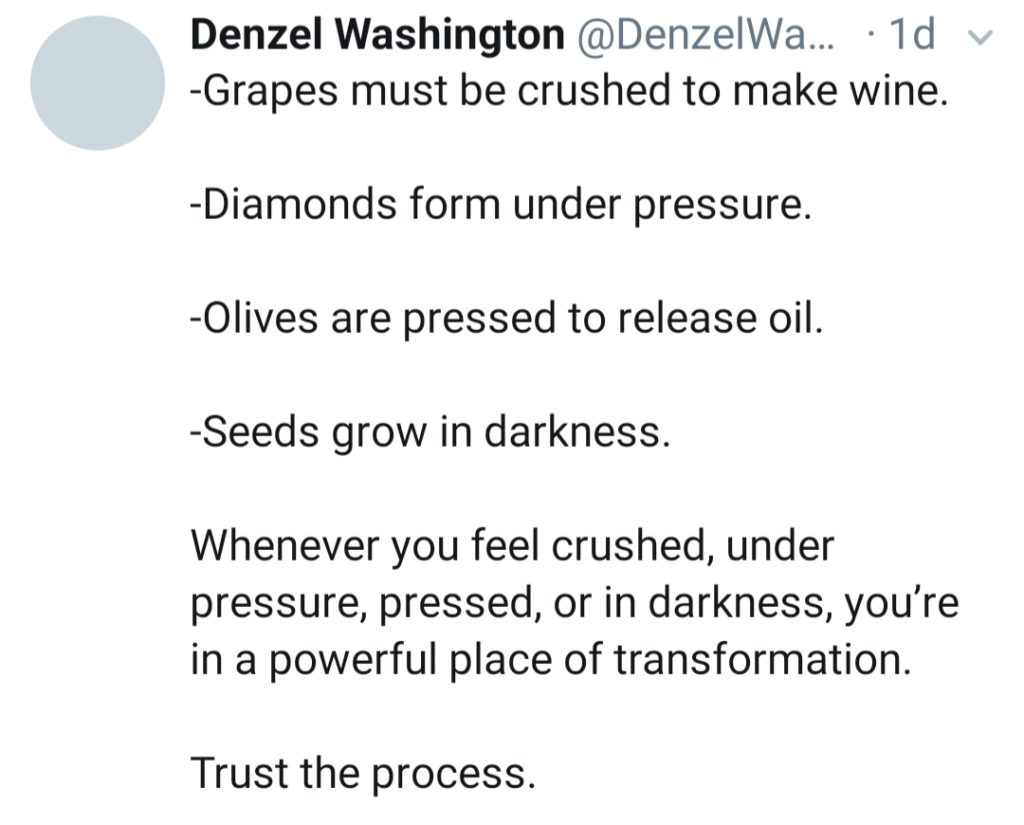
In order to empower students, hear from #studentvoices, teachers, leaders, and community, the status quo will need to be disrupted. That process or transformation will take time, work and a desire to “stay the course” in spite of adversity. Keeping Denzel Washington’s words to “trust the process” in times of trouble will serve us well because our “stick-to-it-iveness will be tested. Keeping the end goal in mind will pay off when we encounter productive struggle and yet remain planful and purposeful.
Reprise: Favorite Quotes
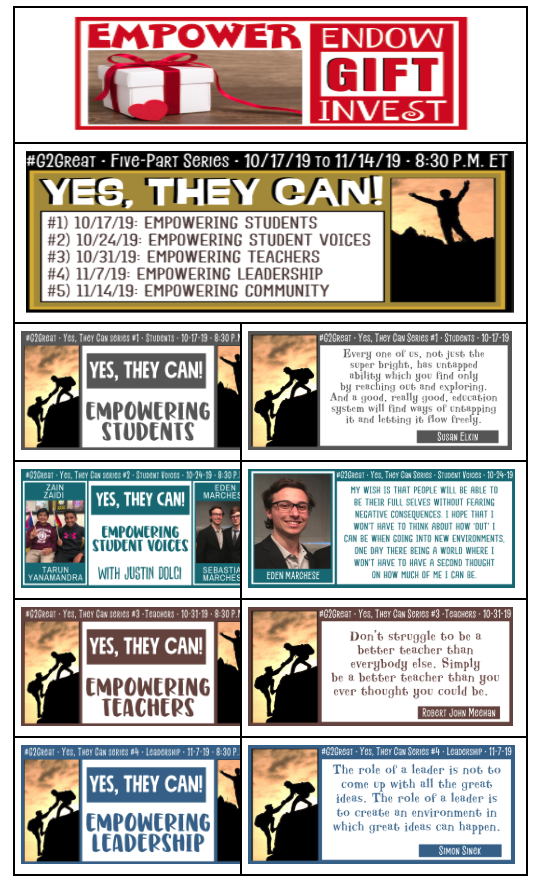
This series of chats had some very consistent recurring phrases: Whole Child, High Expectations, Restraints/Barriers, Partnerships, Measures of Success, Advocacy, and Sustainability whether they were worded that explicitly in every chat. In isolation each phrase is specific to empowerment and worth of investment in resources. And yet, layers of high expectations from students to teachers, to leaders and to communities may result in higher levels of success, advocacy and sustainability when the phrases are also interwoven and combined.
Empowering Community
The final chapter. The final chat. I hear Frank Sinatra in the background, “And now, the end is near, And so I face the final curtain . . .” A focus on “Yes, They Can! means that community will need to be defined. Classroom community, building community and district community will all have impact. But what about the relationship between the school components, the people in the school and the community in which they reside. How well do their needs match up? How well do they interact on a regular basis?
Communication was one key factor that emerged from tweets in our chat. Communicating a consistent school mission/message about the importance of learning and the goals of the school. Communication about the roles of the students, the importance of student agency and the role of the community stakeholders on a regular basis in learning. Communication included measuring and reporting success in stories that matter to the members of the community.
Student agency was another key factor in this chat. The role of students, their own voices and their choices in their learning as well as in volunteerism in the community were noted. Real choices. Real roles. Not just checking off volunteer lists but finding, exploring and developing their personal passions.
Transparency also emerged as a third key factor that included many of the topics in the chat. Transparency in measures of success. Named targets are easier to achieve that unknown shots in the dark. What data is reported beyond the required external, summative assessments? Who tells the stories? Do they show in the board reports, local newspapers, and student yearbooks?
And then the most important factor, the “Yes, They Can!” that was the theme for all five weeks. A belief in students. A belief in parents. A belief in teachers. A belief in leaders. A belief in communities. With high expectations, everyone can reach higher. Everyone can dig in. Everyone can struggle, undergo that transformation that Denzel Washington described, and emerge victorious.
How will you use, “Yes, They Can” to stretch and grow?
| Date | Chat Title | Wake | Blog |
| 10/17/19 | Five-Part Series (Yes, They Can) #1 Empowering Students | Wake | Blog |
| 10/24/19 | Five-Part Series (Yes, They Can) #2 Empowering Student Voices with Justin Dolci | Blog | Blog |
| 10/31/19 | Five-Part Series (Yes, They Can) #3 EmpoweringTeachers | Wake | Blog |
| 10/24/19 | Five-Part Series (Yes, They Can) #4 Empowering Leaders | Wake | Blog |
| 10/17/19 | Five-Part Series (Yes, They Can) #5 Empowering Community | Wake | Blog |
